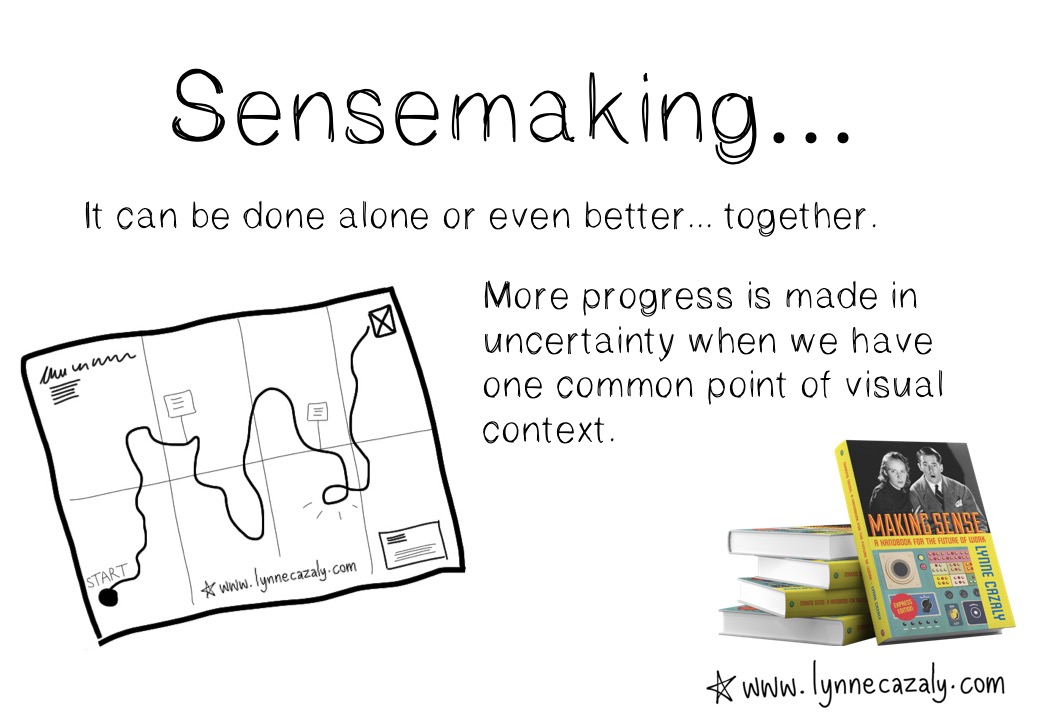Everyone’s got note pads but no one is making sense
 Friday, December 20, 2019 at 9:12AM
Friday, December 20, 2019 at 9:12AM  A meeting room I was in recently had a table with 8 people seated at it. Each person had arrived at the meeting with a collection of props and belongings:
A meeting room I was in recently had a table with 8 people seated at it. Each person had arrived at the meeting with a collection of props and belongings:
- a water bottle
- their ID/security card
- their mobile device
- notepad and pen.
The notepad and pen - yes, an analogue tool, but powerful nonetheless.
Everyone in the meeting was writing their own notes down. Their own insights, their own wording, their own triggers for ideas, their own recollection.
It was very singular, individual even though it was a group meeting. Great! They’re making sense of things, but oh no ...they're doing it alone. Someone says something, then everyone’s head drops down and they all write it down in their own notepad, their own 'map' of the world they're talking about.
We’re individuals trying to work this stuff out as a group.
Sensemaking - it can be done alone or better... together.
Rather than everyone looking at their own 'map', make a group map, a central map on a whiteboard or flipchart.
More progress is made in uncertainty when we have a common point of visual context.




















